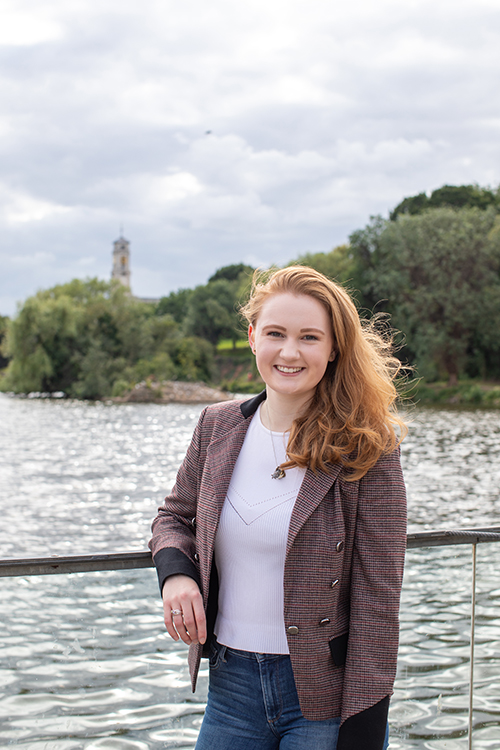May 7, 2021, by School of Medicine
50 at 50: The experience of undertaking CP1 during the Covid-19 pandemic
Clinical placement is a time for us medical students to put into practice all of the skills and academic knowledge we have learnt to date. Additionally, it is a time to realise that when you’re asked a question when you first start on the wards, no matter how simple it is, your mind will go blank for a good couple seconds. However, this subsides, and you do realise that you are capable of answering questions, retaining a lot of information that gets thrown at you and are a benefit to staff and patients. Of all the amazing things I have learnt and seen thus far during my placement one thing in particular has stood out to me – the isolation patients face and how us medical students can help address this.
Hospitalisation during the pandemic is a challenging experience. You might be allowed a visitor once a day for a one-hour period determined by the ward so potentially though you’re welcome to have a visitor they may not be able to see you due to work. Additionally, if you come into contact with a Covid positive individual or contract it yourself, you will find yourself isolated in a bay or side room with staff coming in and out dressed in a huge amount of PPE and unable to stay to speak with you for longer than is necessary due to safety risks. The reality is patients spend a lot of time on their own, some that I met have spent weeks in hospital with no friends or family able to see them. This isolation is brutal and negatively impacts a patient’s mental health.
I feel the greatest benefit I have provided to patients during my placement thus far is being a (gloved) hand to hold and someone to speak to, helping to drive away some of the loneliness and isolation patients face. A highlight for me was a patient telling me that they could not have made it through their hospitalisation without me, that me visiting them each day improved their mood and helped them cope with being on their own.
The wards are constantly busy, the staff never stop. They work 12-hour shifts caring for each patient as best they can whilst also studying for further exams, completing essays and assignments so they can progress their careers and caring for their own families, handling personal challenges outside of work and trying to take care of their own mental and physical health too. Though as medical students we are busy on the wards enhancing and gaining skills and knowledge so that we can become competent doctors and facing all the pressures of medical school and personal life we do have the potential to significantly benefit patients during their hospitalisation. On the wards we do have times when we have no jobs to do, these times could be allocated to supporting patients. Slower times for us on the wards are when we could help most by supporting patients and their mental health. Additionally, this is an educational experience for us. Speaking with patients affords us in-depth knowledge of how illness affects a patient’s life and understanding what they need and want in their care.
Going forward active encouragement of medical students by medical schools and placement organisers to provide patients with someone to speak to on a regular basis could significantly improve the patient’s hospitalisation and aid with their care. This could be an invaluable symbiotic relationship; medical students can support patients and reduce loneliness whilst being afforded the chance to improve communication skills and knowledge of conditions. Patients unexpectedly and brutally encounter isolation during hospitalisation, as medical students we can help minimise loneliness and protect mental health. This placement has shown me that sometimes the most important thing you can do on the wards is be there for someone to speak to or hold the hand of. Supporting someone is the greatest thing you can do.
By Julia Cox, Medical Student


what a super blog. Great to hear the student view of supporting patients in hospital. Thank you